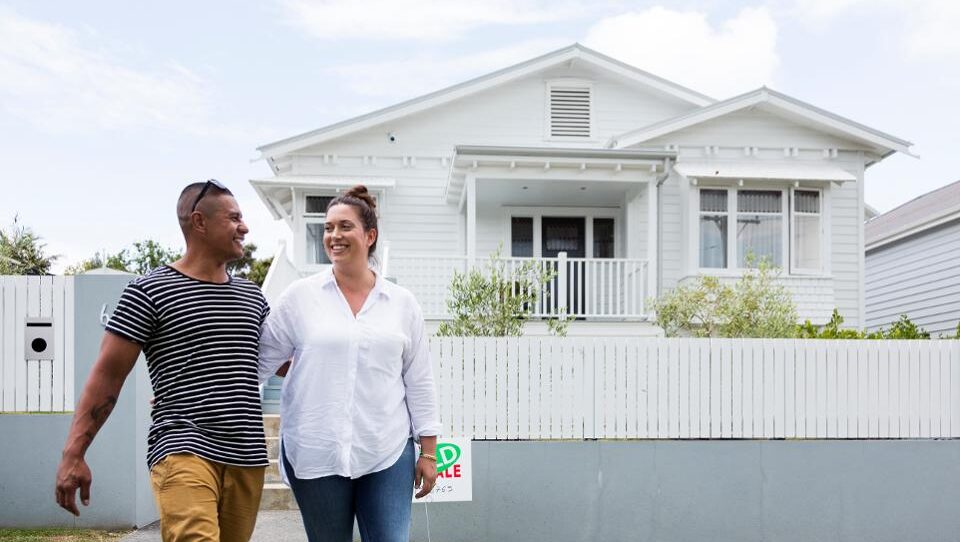When buying a home for the first time, one should have a clear understanding of various home loan options, budget, property type, and all other important aspects. Make sure you have everything from loan terms, interest rate, margins, and loan amount to the builder’s reputation on your checklist.
Are you purchasing a house for investment or personal use? Whatever the reason, it’s best to seek professional advice from a real estate expert.
Here in this article, we have shared some essential tips for first-time home buyers that will definitely make your homeownership process easier and smoother.
Let’s learn strategies for a successful home-buying process!
First-time Home Buyer Tips:
Here are some best tips that will help you with everything from selecting a mortgage, saving a down payment to closing the deal. Take a look!
1. Stay Committed to your Loan:
Keep in your mind that the average mortgage loan term typically ranges from 15 – 30 years. Though it’s not mandatory for the owner to stay in the home, still homeownership is a significant long-term investment. It requires commitment and willingness to take responsibilities such as repair, maintenance, property taxes, and others. Before you apply for a mortgage, ask yourself:
- If I am ready to commit for a minimum of 5 years?
- If I have a reliable & steady source of income?
- If I have enough money in the emergency fund can last for at least 3 months?
If your answer is yes, then you are all set for buying a home. And unfortunately, it’s a no for even one of these questions, then you better concentrate on saving money for a down payment, closing cost, and move-in expenses.
2. How much home can you afford?
Consider your budget, financial condition, credit report, and the size of your family to determine the type of house you can afford. You can even use a home affordability calculator available online or get it evaluated by a real estate expert. It includes calculating your
- Monthly income & Expenses
- Debts
- Credit score, first-time home buyers
- Size of the down payment, and the
- The interest rate on your mortgage
Pro tip: The 28/36 rule states that your monthly installment should not exceed 28% of your gross income. Whereas your total monthly debts should not exceed 36% of your gross income.
The other way around is to consult a financial advisor or mortgage lender to know what home price range is appropriate as per your financial goals.
3. Get pre-approved for a mortgage:
After you have determined your budget, it’s time to get pre-approved for a mortgage. A pre-approval shows you how much the lender is prepared to offer you. It’s better to make a checklist of must-have items when shopping for a home. For example, you can focus on:
- Location
- Size of property
- Type of property
- Total bedrooms/bathrooms required
4. Prequalification Vs. Pre Approval
Although both Prequalification Vs. Pre Approval sound familiar and are used when applying for a personal loan or mortgage, they are entirely different from each other.
Prequalification is the initial stage of the loan application process. It doesn’t guarantee your loan approval. The lender will ask you to provide basic information such as
- income,
- assets, and
- debts.
Getting prequalified for a mortgage gives you an estimate of the loan amount the lender is willing to pay you.
Pre-approval, on the other hand, is a complex process where lenders usually ask you to provide detailed information about your current financial goals. It typically includes:
- tax returns
- bank statements,
- Credit score
- W-2’s
- Credit history
- Gross income
- Mortgage history
- employment history, and so on.
A mortgage pre-approval is a written commitment to lend a certain amount of money. The loan terms and conditions may vary from lender to lender.
5. Research neighborhoods:
Do your research on the neighborhoods you’re interested in. Consider factors such as safety, schools, amenities, commute time, and property values. Researching a neighborhood typically involves information about its demographics, amenities, housing options, crime rate, and overall livability. Below are some steps you can take to research a neighborhood:
- Consult online sources: There are various social media groups and websites like Zillow, Trulia, and Realtor.com where you can get information on homes for sale, neighborhood amenities, schools, crime rates, and more.
- Visit the neighborhood: look around the properties in your neighborhood to know the atmosphere, condition of homes, presence of parks or public spaces, and the overall atmosphere.
- Talk to residents: Ask your neighbors about their perspectives and experience of living in the locality. They can provide valuable insight into the community and other concerns they may have.
- Check crime statistics: Visit local police department websites or online resources to check crime statistics for the neighborhood.
- Assess transportation options: Check whether or not public transportation is easily accessible. Also, gather information about the proximity of major roads or highways.
- Consider your budget: To make sure, your chosen property is a good fit for your budget, we suggest considering the housing prices and other costs in the neighborhood
6. Hire a real estate agent:
A professional real estate agent can help guide you through the whole home-buying process and offer valuable advice. Hire someone who is experienced and knowledgeable about the local market. Let’s see how a real estate agent can assist you:
- Local market knowledge: A real estate agent has extensive knowledge about the local housing market such as housing prices, neighborhood amenities, and schools.
- Access to listings: Agents have access to multiple listing services (MLS). So, they can show you a variety of homes that meet your criteria, including the ones that are not available to the general public.
- Negotiation: An experienced agent can help you negotiate the best price and terms for your purchase, and can advise you on contingencies and other contractual matters.
- Legal expertise: An experienced real estate agent can help you navigate the legal and financial documents, and complexities. They ensure that all paperwork is properly completed and filed.
- Resources: The referrals of a qualified realtor with trusted professionals such as attorneys, mortgage lenders, and home inspectors to help you find the perfect home.
7. Get a home inspection:
It’s important to have a professional home inspection before buying a home. So, you can easily identify the potential issues (if any) with the property and can take an informed decision. Let us tell you that both the appraisal and inspection serve different purposes.
- An appraisal gives a rough estimate of your property value based on various factors, such as location, size, condition, and comparable properties (comps). It doesn’t determine any specific issues in the property.
- Whereas, the home inspection is a detailed examination and helps reveal the potential issues in the property. Based on the inspection results, you can ask the seller for negotiation.
8. Keep Your Credit Score High
Never apply for a new personal loan, credit card, rental application, or line of credit when you are waiting for a mortgage preapproval. Lenders always check your credit report when you close the deal. And unfortunately, if they found anything suspicious they might reject your approval. Below are some tips to maintain a good credit score, and improve your chances of qualifying for a loan.
- Always pay your bills on time including credit card payments, loan payments, and utility bills.
- Keep your credit card balances low. Make sure to not use your available credit beyond 30%.
- Constantly monitor your credit report to identify any errors or fraudulent activity.
- Do not open multiple credit accounts.
- Keep your old accounts open to maintain a longer credit history.
- Diversify your credit; have a mix of credit cards, loans, and a mortgage.
9. Negotiate The Price With the Seller:
Never hesitate to negotiate the house price with the seller. It can help you save money and get a better price for the property you are interested in. For example, you can ask the seller to reduce the property price against the repairs and maintenance expenses. Seller concessions usually include a specific percentage of closing costs. We suggest hiring a real estate agent to provide invaluable insights and facilitate negotiations with the seller. So, how to negotiate with the seller?
- Before making an offer, do well research on the local real estate market and comparable properties to get an idea of the property’s worth.
- Be respectful when negotiating with a seller. Approach negotiations as a collaborative process to find a solution beneficial for both parties.
- Identify areas for negotiation to make counteroffers.
- Always have a backup plan in case negotiations break down.
10. Don’t rush the home-buying process:
Buying a home is a significant investment, so take your time and don’t rush the process. Ask yourself if you are satisfied and comfortable with your decision before signing on the dotted line.
In addition to the buying price of the property, do consider all the additional costs such as:
- Closing Costs
- Property Taxes,
- Homeowner’s Insurance, And
- Maintenance & Repair Costs.
11. Closing Cost
Closing costs are usually paid when real estate translation is completed. You can check the closing disclosure document to know the closing cost. It can vary depending on the size, location, and type of property. It includes:
- Loan-related fees like origination fees, application fees, and appraisal fees.
- Title-related fees such as recording fees, title insurance, and title searches.
- Attorney fees
- Discount points
- Home inspection fees
- Pest inspection fees
- Escrow fees
- Property taxes and Homeowners insurance
- Title insurance expenses
- Discount points
12. Buy within your Budget
Typically, first-time buyers overspend on their first home due to attractive offers and outlooks. Home experts strictly advise first-time buyers to not make costly mistakes. Rather make smart investments that not only check off all of your must-have lists but also help build sweat equity and high ROIs.
Consequently, you won’t have to regret your choice in the future. You might not be able to pay the closing costs and down payment required by larger homes at the time the deal is locked in. Always adhere to your financial plans, and make sure you have enough money set aside for repairs and renovations.
Important Tip: To know whether or not you are ready to become a homeowner, you can opt for the first-time home-buyers class.
13. Invest in Adequate Home Insurance
To make a positive impact on your lender; invest in homeowners insurance. Homeowner insurance includes
- Repair & Maintenance expenses
- Cost to replace your home
- Damages
- House Rebuilding
For example, an umbrella policy covers the expenses for all the major assets such as your house, car, etc.
Final Verdict On Buying A House For The First Time
Enjoy your new home and all the advantages of homeownership once the home-buying process is completed. Before making a hasty home purchase, don’t forget to look into different mortgage options and other comparable properties. It is after all a sizable investment.
Want to know how long it takes to buy a house; the USM loan experts are always available to help you whenever you need it.





